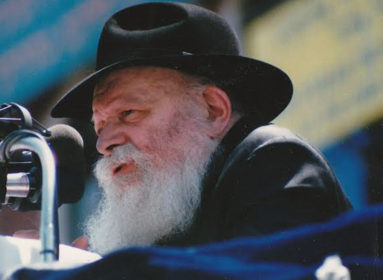By Nathan Guttman
Professor Vijay Prashad returned this week along with students and faculty to Trinity College in Hartford, after a two-year sabbatical.
The scholar, as charismatic as he is controversial, has been at the center of a debate pitting pro-Israel colleagues and activists against the college administration. The feud centers on Prashad’s support for the academic boycott of Israel and the impact these views should have on his career.
For full article visit: http://forward.com/articles/204664/anti-israel-professor-returns-to-trinity-college/
The following is a response to the Forward article from a Trinity professor:
Trinity in turmoil: a postscript
In an email sent to the Ledger, Dr. Sam Kassow, Charles H. Northam Professor of History at Trinity College, called the Forward story regarding Vijay Prashad misleading. “There was never a “demotion,” wrote Kassow. “Prashad’s status as a faculty member, his rank, and his tenure were totally unaffected.” Instead, said Kassow, he and several other Trinity professors “felt that Trinity was making a terrible mistake by appointing a leader of BDS to head a newly created Institute of Interdisciplinary Studies whose purpose was to encourage scholarly inquiry and dialogue.”
To prove his point, Kassow made available to the Ledger the following letter that was sent to the dean of faculty, Rena Fraden, when Prashad’s appointment was announced in May 2010. (Note: James Jones was president of Trinity at the time of Prashad’s appointment.)
Dean Fraden:
We write to protest the appointment of Professor Vijay Prashad to head the College’s new Institute for Interdisciplinary Studies. We do so because we believe that the prominent role he has played in promoting a boycott of Israeli universities and of study abroad in Israel puts him at odds with the fundamental values of the academy – values that President Jones has publicly committed the College to uphold with respect to just such a boycott.
On August 8, 2007, [Jones] was one of 286 college and university presidents to sign a statement published as a full-page ad in the New York Times endorsing the following [excerpted] statement by Columbia University President Lee Bollinger:
As a citizen, I am profoundly disturbed by the recent vote by Britain’s new University and College Union to advance a boycott against Israeli academic institutions. As a university professor and president, I find this idea utterly antithetical to the fundamental values of the academy, where we will not hold intellectual exchange hostage to the political disagreements of the moment. In seeking to quarantine Israeli universities and scholars this vote threatens every university committed to fostering scholarly and cultural exchanges that lead to enlightenment, empathy, and a much-needed international marketplace of ideas.
You will recall that last fall [Jones] hosted a dinner for the rector of the Hebrew University of Jerusalem attended by Trinity faculty and senior administrators from area colleges and universities. Thus by word and deed, the College has both opposed the idea of boycotting Israeli universities and associated itself with the institutions that the boycotters would cut off: If you boycott them, then boycott Trinity too. We strongly support the College’s stance, and would point out as well that the AAUP opposes such boycotts in principle.
For his part, Vijay did not merely sign a January 2009 letter from the U.S. Campaign for the Academic & Cultural Boycott of Israel that called on American institutions of higher education “to cut ties with Israeli academic institutions, dissolve study abroad programs in Israel, and divest institutional funds from Israeli companies, using the 1980s boycott against apartheid South Africa as a model.” He is one of the 17 members of the USACBI Advisory Board for the U.S. (http://usacbi.wordpress.com/advisory-board/). Among the initiatives advocated by the USACBI are:
Refrain from participation in any form of academic and cultural cooperation, collaboration or joint projects with Israeli institutions; Advocate a comprehensive boycott of Israeli institutions at the national and international levels; Promote divestment and disinvestment from Israel by academic institutions, and place pressure on your own institution to suspend all ties with Israeli universities, including collaborative projects, study abroad, funding and exchanges.
Lest there be any misunderstanding, we unequivocally acknowledge Vijay’s right, as a member of the Trinity faculty, to advocate for such positions – a right we would defend as indispensable to the maintenance of academic freedom. But by such advocacy, Vijay is committed to a policy contrary to the institute’s stated purpose: to “create a space and a place for faculty as intellectuals to exchange ideas, read books, work on each other’s papers, and invite other scholars to campus to engage in ongoing discussions.” No vow of impartiality or promise to keep his advocacy of a boycott of Israeli academic institutions separate from his running of the institute would change the fact that the College had given a position of leadership to a proponent of an academic boycott, that, like all such boycotts, the president has condemned as incompatible with our basic mission as an institution of higher education.
There are larger issues at stake here for Trinity than a conflict between supporters and critics of Israel. Academic boycotts are exercises in restricting the free exchange of ideas that can be directed at any target according to the political fashion of the day. They have no place at a liberal arts college. Vijay’s appointment sends mixed signals to students, faculty, alumni, and the public at large about where the College stands with respect to core academic principles of free inquiry and dialogue. Should he explicitly retract his support of academic boycotts, including boycotts of Israel (as some of us have urged him to do), that would change our view of the matter. If he does not, we urge you to appoint another faculty member to direct the TIIS.







 Southern New England Jewish Ledger
Southern New England Jewish Ledger















